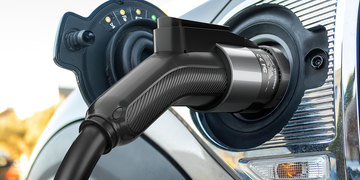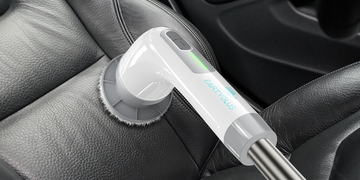As more people consider making the switch to electric vehicles (EVs), there's a common question that lingers in the minds of potential EV owners: How reliable are those batteries, and will they really save me money in the long run? In this blog, we'll take a closer look at the durability and efficiency of electric car batteries to help answer these important questions.
Electric car battery basics
Before delving into the lifespan of electric car batteries, it's essential to understand the basics of these powerhouses. EV batteries are typically lithium-ion batteries, similar to those found in laptops and smartphones. However, they are significantly larger and more complex to meet the demands of propelling a vehicle.
EV battery packs consist of numerous individual cells, and these cells are designed to be durable and long-lasting. They work by storing electrical energy in the form of chemical reactions, allowing the vehicle to draw power when needed. These lithium-ion battery packs hold their charge better than the batteries on internal combustion engines.
Battery capacity is measured in "kWh" or kilowatt-hour. The more kWh your car has, the farther you can drive on a single charge. So, think of the kWh rating as choosing the size of your car's gas tank when picking an electric vehicle.
Electric car battery life expectancy
The longevity of an EV battery pack depends on several factors, including the type of battery, how it's used, and how well it's maintained. On average, electric car batteries are designed to last at least 100,000 miles (160,000 kilometers) or more. Some newer EV models claim a lifespan of 200,000 miles (320,000 kilometers) or even more.
It's important to note that "battery life" in this context doesn't mean that the battery suddenly dies after reaching a specific mileage. Instead, it refers to the point at which the battery's capacity has degraded to a certain level, typically around 70-80% of its original capacity. This capacity loss, known as battery degradation, is a gradual process.
EV battery degradation
Battery degradation is the natural wear and tear that occurs over time as an electric vehicle battery is charged and discharged. Factors contributing to battery degradation include:
Charge and discharge cycles: Each time an electric vehicle's battery pack is charged and then discharged, it goes through a cycle. The more cycles a battery undergoes, the more it degrades. However, modern EVs are designed to have a high number of cycles before significant degradation occurs.
Temperature: Extreme temperatures, both hot and cold, can accelerate battery degradation. High temperatures can cause chemical reactions that lead to faster degradation, while cold temperatures can reduce the battery's efficiency. Electric cars in hot weather require careful management of battery temperature to mitigate these effects and ensure optimal performance and longevity.
Charging habits: Rapid charging, particularly at high voltages, can put more stress on the battery and lead to faster degradation. This is why many EV manufacturers recommend avoiding frequent fast charging unless necessary.
State of charge: Keeping the battery constantly at 100% charge or letting it run down to very low levels can also contribute to degradation. It's best to keep the battery between 20% and 80% charge for optimal longevity.
How Long Do Electric Car Batteries Last?
How Long Do Electric Car Batteries Last? In general, most electric car manufacturers provide warranties on their batteries that cover a specified number of years or miles. For example, common warranties might cover 8 years or 100,000 miles, but some manufacturers offer longer warranties, especially for certain components. These warranties are a good indicator of the manufacturer's confidence in their battery technology.
With proper care and attention to the factors mentioned above, electric car batteries can retain a significant portion of their capacity even after the warranty period. As battery technology continues to evolve, we can expect longer-lasting and more durable electric car batteries in the future.





